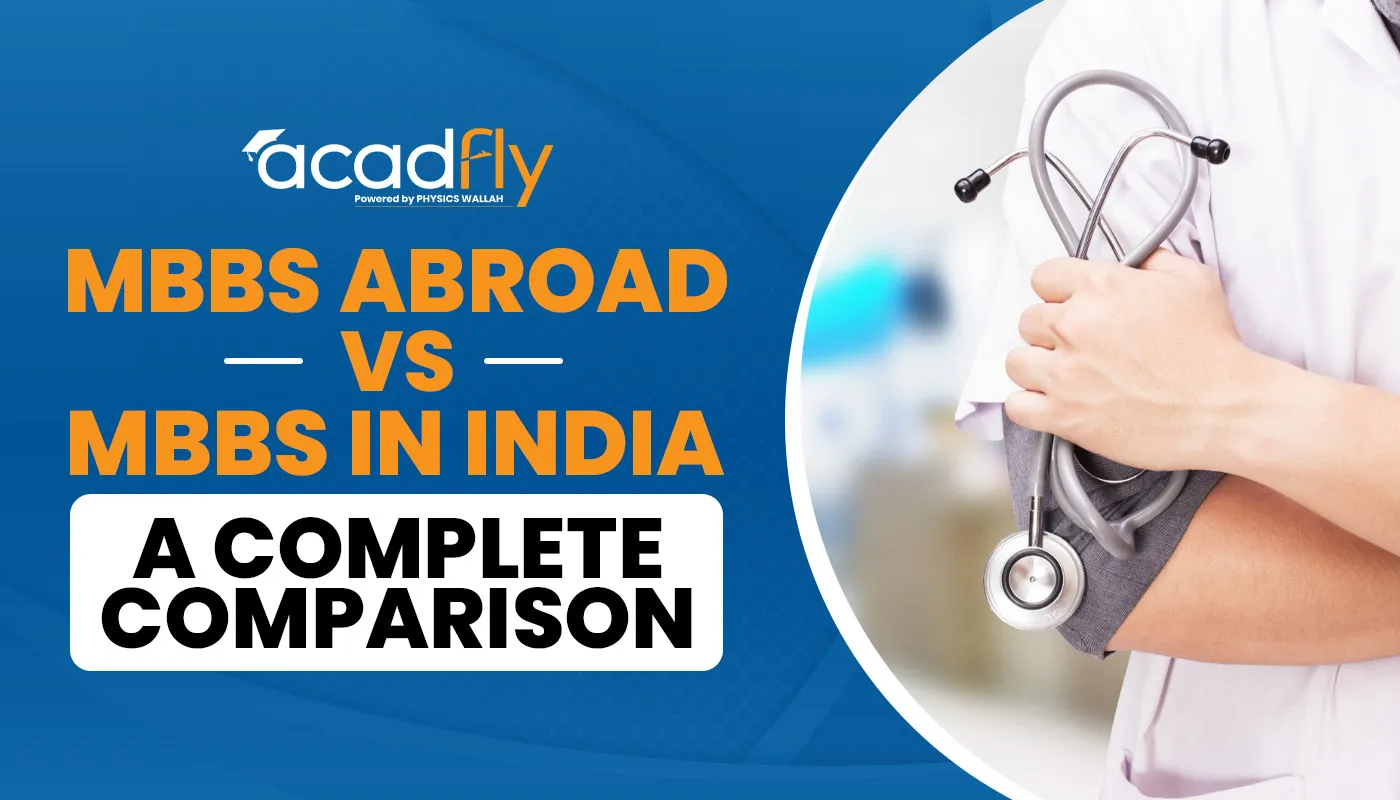


Pursuing an MBBS degree is a significant milestone for aspiring medical professionals. In India, students often face intense competition for limited seats in government medical colleges, while private institutions can be financially burdensome. Consequently, many consider studying MBBS abroad as a viable alternative. Here we provide a detailed comparison between pursuing MBBS in India and abroad, focusing on aspects such as course duration, cost, eligibility criteria, admission processes, curriculum, and career prospects.
Understanding the duration and academic framework of the MBBS program in India and abroad helps students plan their educational journey and assess the commitment required for both options.
MBBS in India
The MBBS program in India spans 5.5 years, comprising 4.5 years of academic study followed by a 1-year compulsory internship. The curriculum is structured to provide foundational knowledge in medical sciences, followed by clinical training in hospitals.
MBBS Abroad
International MBBS programs typically last 6 years, including a 1-year internship. The initial years focus on basic medical sciences, while the latter years emphasize clinical training and practical exposure in hospitals. Countries like Russia, Kazakhstan, and Georgia offer such programs, often in English, catering to international students.
Comparing the overall expenses involved in pursuing MBBS in India and abroad provides insight into financial planning and affordability for students and their families.
MBBS in India
The cost of pursuing MBBS in India varies significantly between government and private institutions. Government colleges charge annual fees ranging from ₹20,000 to ₹1.5 lakh, making them more accessible. In contrast, private medical colleges can charge annual tuition fees between ₹10 lakh and ₹30 lakh, excluding additional expenses like hostel and examination fees.
MBBS Abroad
Studying MBBS abroad can be more cost-effective. For instance, in countries like Russia and Kazakhstan, the total course fee ranges from ₹15 lakh to ₹35 lakh, including tuition and living expenses. This is considerably lower than the fees in Indian private colleges, offering a more affordable option for students.
Admission criteria and eligibility requirements differ significantly between Indian and foreign medical institutions, influencing students’ application strategies.
MBBS in India
Admission to MBBS programs in India requires candidates to qualify the National Eligibility cum Entrance Test (NEET). Eligibility criteria include a minimum of 50% marks in Physics, Chemistry, and Biology in the 12th standard. Competition is intense, with over 20 lakh students vying for approximately 90,000 seats.
MBBS Abroad
To pursue MBBS abroad, Indian students must qualify NEET. Some countries may also require passing an additional university-specific entrance exam. However, the competition is generally lower compared to India, and many universities offer direct admission based on academic performance in the 12th standard.
A detailed look at the curriculum and clinical training opportunities reveals the depth and practical relevance of medical education in both settings.
MBBS in India
Indian medical colleges emphasize theoretical knowledge, with clinical exposure commencing in the third year. The internship year provides hands-on experience in various medical departments. However, the quality of practical training can vary between institutions.
MBBS Abroad
Medical universities abroad often provide early and extensive clinical exposure. Countries like Russia and Kazakhstan have well-established medical programs with modern facilities, offering students opportunities to engage in practical training from the early years of the course. This early exposure can enhance clinical skills and preparedness for real-world medical practice.
Aspiring medical professionals must understand the regulatory requirements for practicing in India after earning an MBBS degree either domestically or internationally.
MBBS in India
Graduates from Indian medical colleges are eligible to register with the National Medical Commission (NMC) and practice medicine in India without additional examinations.
MBBS Abroad
Indian students graduating from foreign medical universities must clear the Foreign Medical Graduate Examination (FMGE) to practice in India. Some universities offer preparatory courses for FMGE, increasing the chances of passing the exam.
Evaluating future career pathways and international opportunities helps students align their educational choices with long-term professional goals.
MBBS in India
An MBBS degree from an Indian institution opens opportunities in government and private hospitals across the country. Postgraduate specialization requires clearing entrance exams like NEET-PG.
MBBS Abroad
Graduates from foreign medical universities can pursue postgraduate studies in India or abroad. Countries like the USA, UK, and Canada offer pathways for further specialization, provided the individual meets the respective licensing requirements. Additionally, the international exposure gained during studies can be advantageous in global medical practice.
